Human nature is an intricate puzzle, full of contradictions that shape our lives in ways we often don’t realize. On one side, we are capable of extraordinary feats, influencing and even toppling the strongest of institutions. Yet, we also have an inherent need to worship something—whether it’s our ego, our family, our nation, or even abstract ideals. This duality isn’t just a philosophical concept; it’s a real, ongoing battle within each of us—a battle between our emotions and our rationality.
Want to know more about this battle? Click and check out this video.
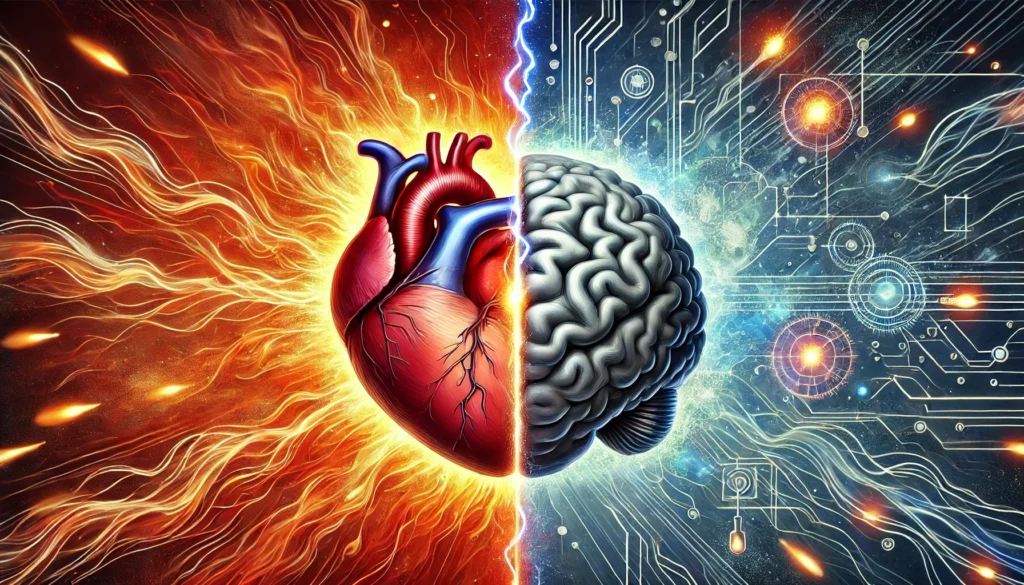
But why does this matter? Because understanding this internal conflict is the key to unlocking our true potential. If you’ve ever found yourself making decisions that you later regretted, or if you’ve ever been overwhelmed by feelings that seemed to hijack your better judgment, then you’ve already experienced the power of this struggle. This isn’t just about self-improvement; it’s about gaining control over the forces that shape our lives and, ultimately, our success.

The Two Selves: Higher vs. Lower
At the heart of this battle lies a fundamental duality in human nature. We each possess a lower self and a higher self. The lower self is impulsive, driven by primal urges, and quick to react. It’s the part of us that acts without thinking, often leading to decisions we wish we could take back. The higher self, on the other hand, is thoughtful, deliberate, and rooted in self-awareness. It represents the rational, human side of our nature—the side that plans, reflects, and acts with purpose.
Maintaining control of the higher self isn’t easy. It requires continuous effort and awareness. The lower self, with its reactive tendencies, often seizes control, especially when our emotions are left unchecked. These emotions, powerful as they are, can cloud our judgment, distort reality, and lead us down paths we later regret.
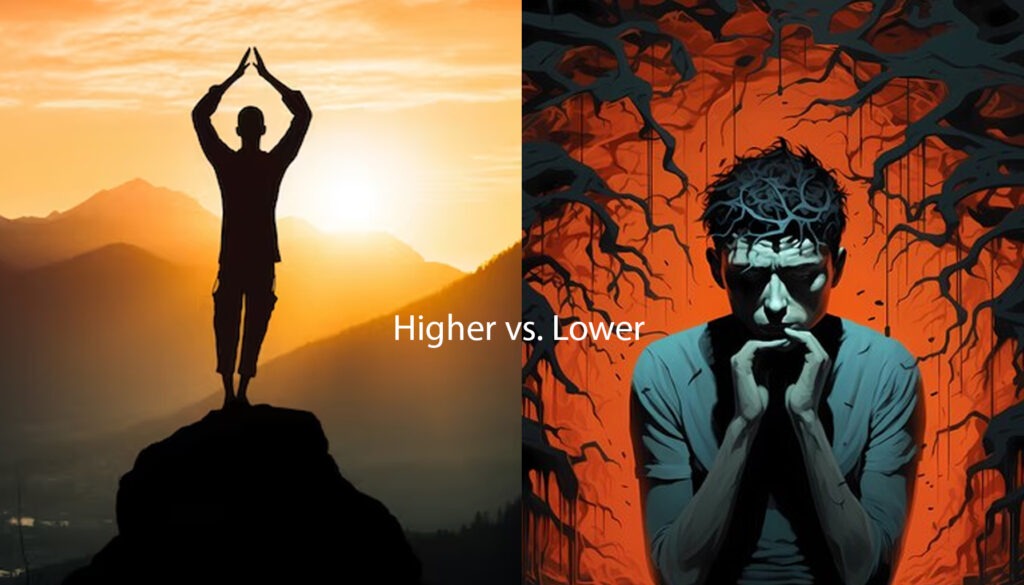
The Art of Rational Thinking
Rationality isn’t something we’re born with; it’s a skill that must be honed. It requires discipline and practice, but the rewards are immense. When we manage to stay calm and focused, our rational mind opens up, allowing us to see situations from new perspectives and solve problems that once seemed insurmountable. However, this clarity is often obstructed by the weight of our emotions, making it difficult to access our higher cognitive abilities.

History offers us countless examples of what happens when rationality is overwhelmed by emotion. From the horrors of the Holocaust to the financial meltdown of 2008, we see the devastating consequences of letting our lower selves take the lead. These aren’t just historical events; they are stark reminders of what can happen when we lose touch with our rational nature.
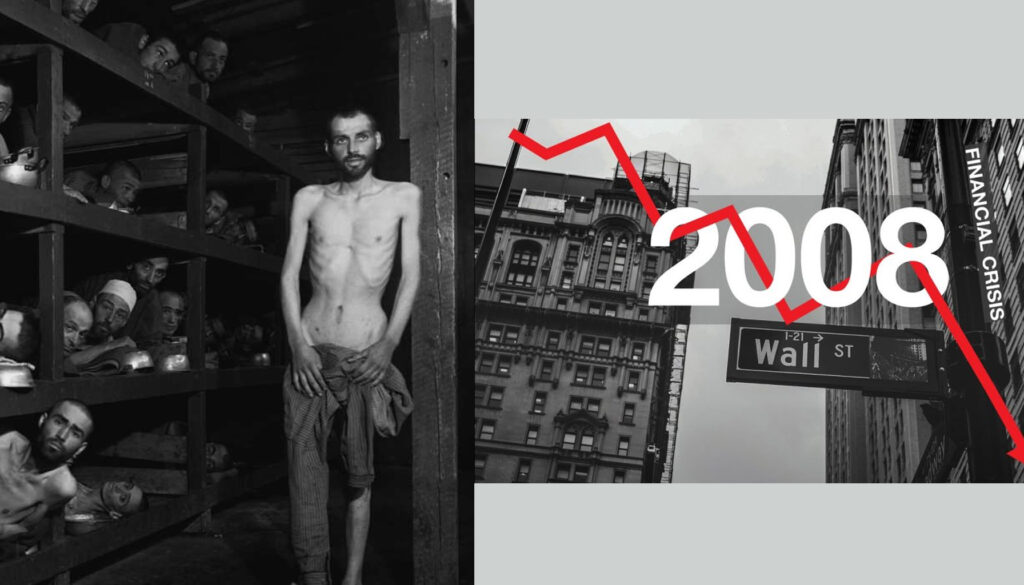
The Evolutionary Perspective
To understand why this struggle exists, we need to look at the evolution of the human brain. Our brains developed in stages: first, the reptilian brain, which controls our basic survival instincts; then, the limbic brain, responsible for our emotions; and finally, the neocortex, the seat of rational thought and language. These three parts are often at odds, like three advisors with conflicting agendas.
This internal conflict explains why we sometimes feel emotions so intensely that they seem to control us. It’s why we might feel anger, fear, or joy without fully understanding why. Our brains are wired to react, but they’re also capable of incredible rational thought—if we can learn to harness it.
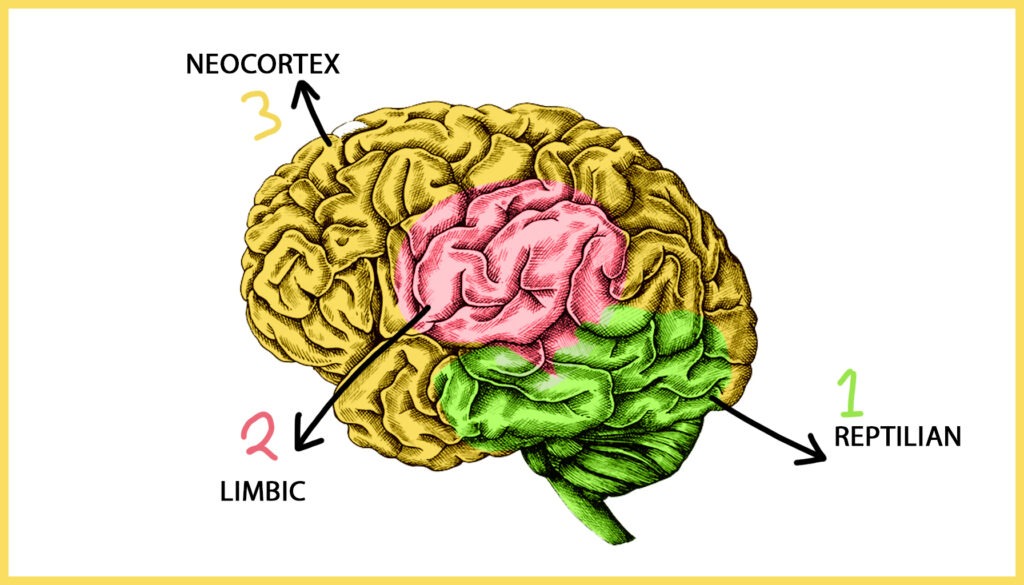
The Complexity of Emotions
Emotions are rarely simple. They’re complex, multifaceted, and often difficult to articulate. Imagine buying something online at a deep discount, only to find out it’s defective, while a friend who made the same purchase gets a perfect product. Then, you see an even better deal a few days later. What do you feel? Fear, anger, greed, envy—likely all of these, all at once. These tangled emotions can cloud your judgment, making it hard to make rational decisions.
This complexity is one reason why our decision-making is often flawed. Emotions are meant to be felt, not necessarily analyzed. Cognition, on the other hand, is about analyzing and acting. When these two processes clash, it creates the internal friction we often experience. Unlike animals, who react and move on, humans have the cognitive capacity to dwell on emotions, often exacerbating them.

The Challenge of Irrationality
Irrational thinking is a challenge we all face. It leads to poor decisions, emotional manipulation, misinformation, and conflict, all of which hinder our progress and success. The 2008 financial crisis is a prime example of the dangers of letting irrationality dominate.

Striving for Rationality
So, how do we become more rational in a world dominated by emotion? The first step is awareness. Rational individuals recognize their emotional tendencies and strive to manage them with thoughtful introspection. They don’t ignore their emotions, but they don’t let them take the driver’s seat either.
Balancing emotion and reason is essential for personal and professional success. Developing emotional intelligence is key to navigating life’s challenges and making decisions that align with our higher selves. By becoming more aware of our emotions, we can better control them, making us more effective in everything we do.

Conclusion: The Journey Ahead
The battle between emotions and rationality is ongoing and ever-present. But by understanding this internal conflict and learning to manage our emotions with awareness, we can unlock our true potential. This isn’t just about being more rational; it’s about mastering the forces that shape our lives.
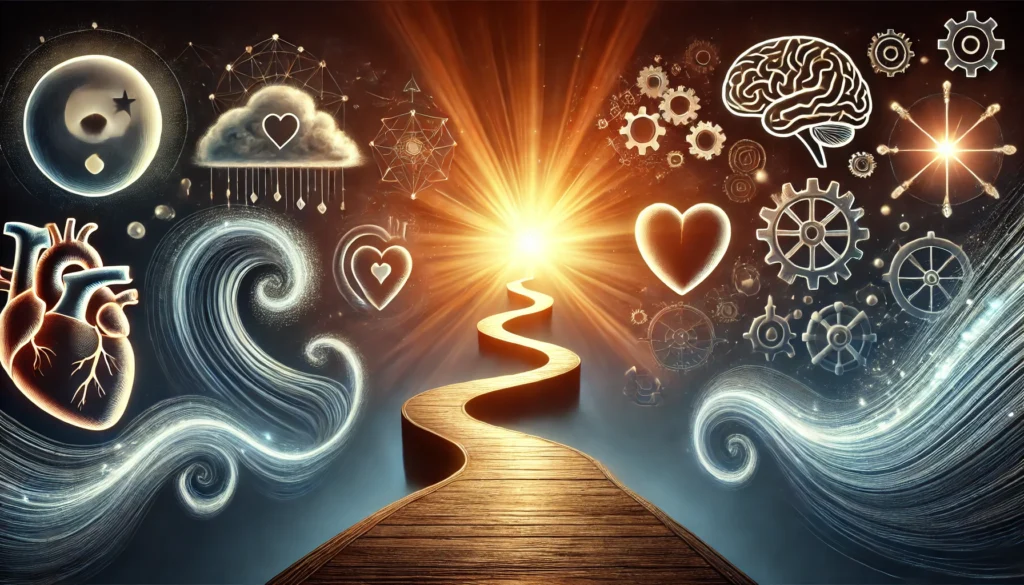
As we continue to explore these themes, stay tuned for the next blog, where we’ll dive into practical strategies for cultivating rationality in your daily life. Understanding the theory is just the beginning—the real power lies in applying it. Until then, keep striving for balance, and remember: your journey toward rationality is one of the most important you’ll ever undertake.
